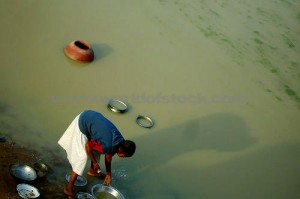Orúkọ idile Yorùbá ti ó nparẹ́ nitori èsìn. Àwọn orúkọ ìdílé wọnyi kò di ẹlẹ́sìn lọ́wọ́ lati ṣe iṣẹ́ rere tàbi dé ọ̀run,
ENGLISH TRANSLATION
Yoruba family names that are disappearing. These traditional names should not be seen as obstacles by religious ones to doing good work or getting to heaven.
ÒGÚN – god of iron, war and justice
| Orúkọ idile Yorùbá | Orúkọ igbàlódé ti ó dipò orúkọ ibilẹ̀ | English/Literal meaning – IFA –Yoruba Religion |
| Adéògún | Ogun’s crown | |
| Ògúnadé | Ogun in the crown | |
| Ògúnbámbi | Olúbambi | |
| Ògúnbiyi | Olubiyi/Biyi | Ogun/God gave birth to this |
| Ògúnbùnmi | Olúbùnmi/Bunmi | Ogun/God gave me |
| Ògúnbọ̀wálé | Adébọ̀wálé/Débọ̀ | |
| Ògúndàmọ́lá | Adédàmọ́lá/Dàmọ́lá | Ogun/Crown mixed with wealth |
| Ògúndiyimú/Ògúndimú | ||
| Ògúǹdé/Ògúnrindé | Ogun has arrived | |
| Ògúndélé | Ọládélé/Délé | Ogun came home |
| Ògúndèyi | Ogun has become this | |
| Ògúnfúnmi/Ògúnbùnfúnmi | Olúwáfúnmi/Fúnmi | Ogun gave me |
| Ògúngbadé | Olúgbadé/Gbadé | Ogun received the crown |
| Ògúngbèjà | Olúgbèjà | Ogun/God defends |
| Ògúnkọ̀yà | Olúkọ̀yà/Kọ̀yà | Ogun/God rejected suffering |
| Ogunlade | Olulade | |
| Ògúnlàjà | Olulaja/Laja | Ogun/God separated a fight |
| Ògúnlànà | Olúlànà | Ogun/God paved the way |
| Ògúnlékè | Ọlálékè/Lékè | Ogun/God prevailed |
| Ògúnléndé | Ogun pursued me here | |
| Ògúnlẹyẹ | Olulẹyẹ/Lẹyẹ | Ogun/God is honourable |
| Ògúnmọ́dẹdé | Olúmọ́dẹdé | Ogun/God made the hunter to arrive |
| Ògúnmọ́lá | Olumola | Ogun/God plus wealth |
| Ògúnmuyiwa | Olúmuyiwa/Muyiwa | Ogun/God brought this |
| Ògúnpọ́nlé/Ògúnpọ́nmilé | Olúpọ́nlé/Pọ́nlé | Ogun/God honoured me |
| Ògúnrẹ̀milẹ́kún | Oluwarẹmilẹkun/Rẹmi | Ogun/God consoled me |
| Ògúnrọ̀gbà | Adérọ̀gbà | Ogun/Crown has eased time |
| Ògúnsànyà | Olúsànyà/Sànyà | Ogun/God repay suffering |
| Ògúnṣẹ̀san | Olúṣẹsan/Ṣẹ̀san | Ogun/God compensate |
| Ògúnṣinà | Olúṣinà/Ṣina | Ogun/God opened the way |
| Ògúnṣọlá | Olúṣọlá/Ṣọlá | Ogun/God created wealth |
| Ògúnṣuyi | Ọláṣuyi/Ṣuyi | Ogun/God created honour |
| Ògúntóbi | Oluwatóbi | Ogun/God is great |
| Ògúntọ́ba | Olútọ̀ba | Ogun/God is equal to the King |
| Ògúntólú | Adétólú | Ogun/Crown is equal to the gods |
| Ògúntọ́lá | Olútọ́lá | Ogun/God is equal to wealth |
| Ògúntọ̀nà | Adétọ̀nà | Ogun/God leads the way |
| Ògúntoyinbo | Ogun is equal to the white man | |
| Ogunye | Ogun survived | |
| Ògúnyẹmi | Olúyẹmi/Yẹmi | Ogun suits me |
Originally posted 2016-04-05 11:47:25. Republished by Blog Post Promoter




